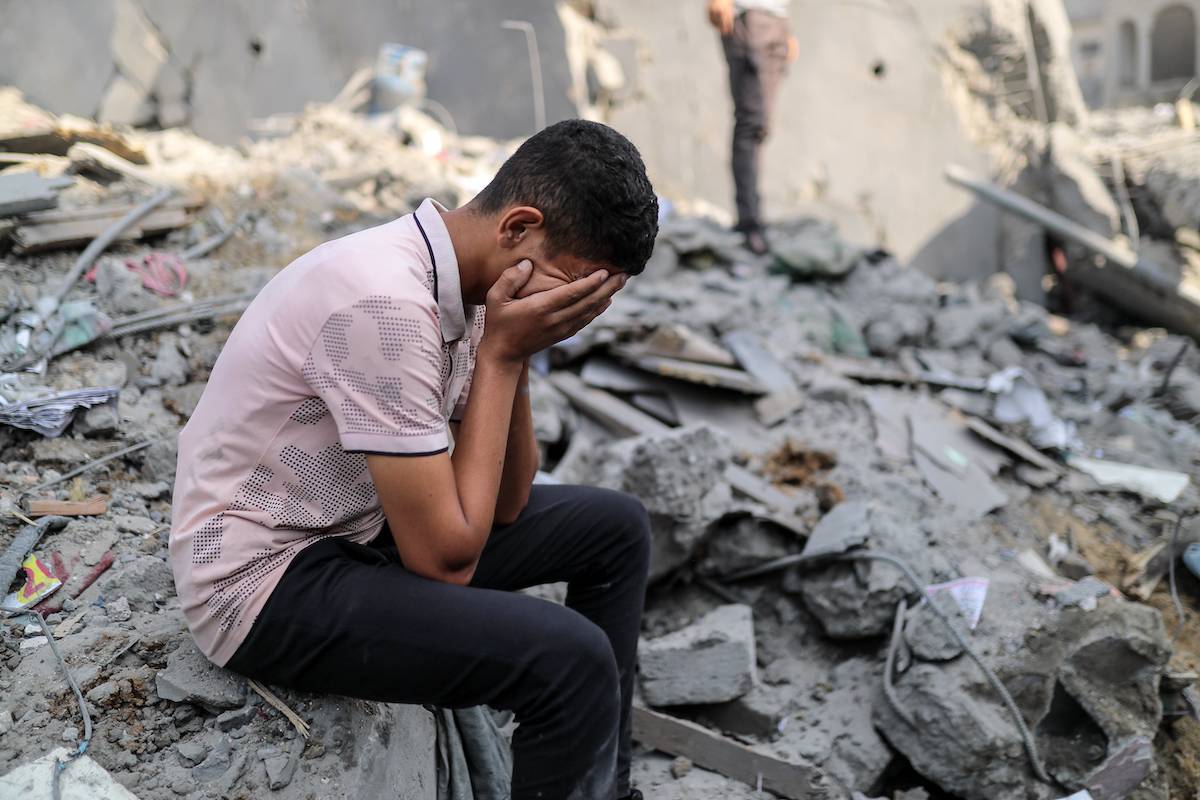The post-Cold War era witnessed two distinct phases following the dismemberment of the USSR in 1991 and another significant shift a decade after the events of 9/11 in 2001. After looking at the current geo-political developments, the emergence of a new phase seems inevitable, i.e., the era of co-existence and conflict management. The crucial moment for the start of this phase was the withdrawal of US forces from Afghanistan in 2021 and the Taliban regaining control there in the same year.
The dissolution of the USSR marked the end of a bipolar power structure, and despite the US aspiration to maintain sole supremacy, the dynamics of global power have evolved into a more balanced and multipolar landscape. The geopolitical landscape has become more complex, with multiple centers of influence shaping international affairs.

Despite the US’s determined efforts to assert itself as the singular global superpower, events unfolded in a manner contrary to its aspirations, contributing to the emergence of a more interdependent and distributed power structure on the world stage.
The contemporary global landscape is marked by several competitors to the “once considered” sole superpower, the USA, with China taking the lead, alongside contenders such as India, and Japan, and robust European economies like Germany. Notably, in the realm of international conflicts, the US has adopted a strategy of collaborative engagement rather than unilateral action. Instances such as Afghanistan and Iraq demonstrate a reliance on alliances, reflecting the evolving nature of global collaboration.
Avoiding armed conflicts:
The concept of coexistence has found resonance, especially in regions where armed conflicts were avoided or approached diplomatically. Take the Arab Spring, for instance, where the USA supported a revolutionary uprising without being overtly involved in any armed conflict.
A critical case is Syria, where the USA navigated complex dynamics without directly confronting Russia in armed conflict. This exemplifies a shift towards a new phase of global interactions, one characterized by a subtle management of relationships. Instead of plunging into crises—be they political, economic, or security-related—the world appears to be steering towards a more measured and cooperative mode of coexistence.
Another illustration is the aftermath of the Taliban’s takeover of Afghanistan. The United States, having experienced a previous intervention in Afghanistan, opted not to reengage militarily. This strategic decision reflects a recognition by other powers that nations have the right to determine their own path, and imposing Western values may not be feasible. The focus has shifted from attempting to Westernize or modernize every inch of the world to respecting diverse ways of life and letting nations pursue their chosen paths without interference. This marks a departure from previous interventionist approaches.
Normalizing various long-standing conflicts:
Examining various sectors of global relations reveals a noteworthy trend in handling political crises—a shift toward coexistence. One compelling example is the diplomatic breakthrough in Arab-Israeli relations, where several Arab countries have embraced a coexistent approach with Israel and have started to develop diplomatic relations with it.
In the case of the long-standing conflict between Pakistan and India over Kashmir, a significant development occurred when India revoked Article 370 which gave special status to Jammu and Kashmir in its constitution. Surprisingly, Pakistan’s response was quite passive, avoiding any massive escalation. This demonstrated a nuanced approach, allowing India to proceed with the reconfiguration of Kashmir’s administration without triggering a full-scale crisis.
Incidents like the murder of Jamal Khashoggi, a Saudi American at the Saudi embassy in Istanbul and in Saudi Arabia the execution of a Shia cleric Sheikh Nimr al-Nimr, popular in Iran, led to a diplomatic crisis but were resolved by compromises without any escalation. The recent case of the murder of a Sikh separatist leader in Canada shall also close without any serious and long-term diplomatic deadlock between India and Canada.
Economic Interdependency:
A necessity of coexistence and interdependency has evolved even in the realm of economy. The ascendant economic competency of China drew considerable attention and, at times, frustration from Western powers, particularly the US. In response, the US deployed sanctions to bolster its own local economy and counteract China’s growth. However, the reality unfolded differently—China not only weathered these sanctions but continued to flourish economically.
A standout illustration is the China-Pakistan Economic Corridor (CPEC), a flagship project of the Belt and Road Initiative. Despite initial concerns and attempts to limit China’s economic influence, the US acknowledged the impracticality of halting the economic rollercoaster that China has become. The coexistence principle became evident as the US shifted focus from attempting to stifle others’ growth to nurturing its own economic development.
Similarly, the world’s dependence on Asia, particularly in terms of manpower and being a global production factory, is undeniable.
The emergence of BRICS (Brazil, Russia, India, China, and South Africa) further exemplifies this era of coexistence. Despite being serious economic competitors and occasional clashes at the border, India and China, in particular, recognized the mutual benefits of collaboration. The formation of BRICS underscores the understanding that joining forces, rather than impeding one another, fosters collective growth and prosperity. This cooperative approach reflects a departure from confrontational economic strategies and emphasizes the importance of shared prosperity in the global economic landscape.
Common threats
The world is demonstrating a united front in facing common threats like terrorism, climate change, pandemic, etc. After 9/11, terrorism was seen as a preserve of Muslim communities. However witnessing examples of incidents like the Christchurch shooting in New Zealand, Quran burnings in European cities, and persecution and harassment of minorities in Myanmar and India, terrorism is now recognized as a global concern transcending religious boundaries.
The COVID-19 crisis has showcased global cooperation and a shared sense of humanity. Nations collaboratively navigated the pandemic, emphasizing a collective response and coexistence during challenging times. This solidarity highlights the interconnectedness of the world, emphasizing a shared responsibility for each other’s well-being in the face of calamities like epidemics or natural disasters.
Another common thread unifying humanity is the urgent battle against climate change. Every country is actively addressing and managing this threat to avert serious damage to the planet. The commitment to tackling climate change underscores a collective understanding that environmental challenges require global cooperation and joint efforts to ensure the well-being of the entire world and humanity.
Global cultural connectedness
The global embrace of modernization and, to a certain extent, Westernization signifies a collective willingness to coexist amid diverse cultures. While not an absolute adoption of Western values, this acceptance is evident in the migration of Muslims and Arabs to Western countries in search of economic opportunities and a good standard of living. The welcoming of refugees from various parts of the world by developed nations exemplifies a broader acceptance, demonstrating that advanced societies acknowledge and accommodate individuals from developing nations. This trend reflects a growing understanding of the interconnectedness of the world and a shared commitment to fostering inclusivity.
Similarly, the welcome of non-Muslims in oil-rich Middle Eastern countries is another example of acceptance and harmony on the basis of merit and equal participation in the required fields.
Red Zones, turbulent realms
However, this perspective doesn’t imply that the world will turn into heaven—there will still persist conflict zones that the world must learn to navigate and live with. Regions like Israel, Palestine, Iran, and North Korea present ongoing challenges of potential confrontation for the rest of the world. The key emphasis lies in developing strategies to coexist with these ‘angry birds’ rather than allowing them to escalate into major catastrophes. While acknowledging the existence of conflict zones, the predominant trend is toward global efforts to avoid catastrophic events such as world wars. It’s a pragmatic view that recognizes the complexities of international relations and strives for a balanced and peaceful cohabitation on a global scale.
The ongoing conflict between Ukraine and Russia demands attention, yet there’s a notable absence of its escalation into other regions. Instead, the conflict seems to be eroding Russia’s strength, pointing towards a potential resolution soon. It’s anticipated that Russia, too, will evolve to embrace a coexistence mindset rather than persisting in a confrontational stance.
The only viable solution to the Palestine-Israel conflict is to declare it a global zone accessible by everyone and not ruled by anyone, administered by the United Nations and secured by the UN peacekeeping force.
War is not a solution
Efficient diplomacy, characterized by across-the-table talks, negotiations, and compromises, emerges as the optimal approach to overcome conflicts in the current multipolar world. Drawing lessons from history, such as the aftermath of World War II, where the devastation led European powers to unite in the form of the European Union for enduring peace, reinforces the idea that cooperation is the pathway to prosperity and development.
The notion here is clear: war is not a solution. The global community should learn from the lessons of the past and realize that managing differences through dialogue is the only sustainable way forward. Reflecting this mindset, there may come a time when even nuclear powers decide to diminish their reliance on nuclear weapons. The ultimate blessing for the world would be the dismantling of these destructive arsenals, signaling a commitment to peaceful coexistence and conflict management without resorting to a scenario like Armageddon.
(The author is an entrepreneur and a lecturer in history and development studies at Iqra University, Army Public School And College (COD), Karachi, Pakistan. Views are personal. He can be contacted at [email protected])
Read more at: https://www.southasiamonitor.org/spotlight/global-community-should-realise-futility-war-usher-era-coexistence-and-conflict











